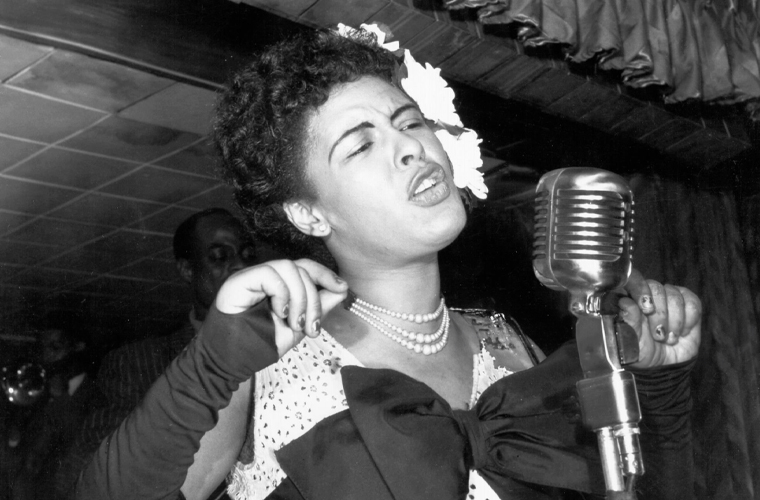Billie Holiday, born Eleanora Fagan Gough, was an American jazz singer and songwriter who left an indelible mark on the music industry. With her unique voice, emotional depth, and captivating stage presence, she became one of the most influential and iconic figures in jazz history. Despite a life filled with hardships and struggles, Billie Holiday’s talent and artistry continue to inspire generations of musicians and fans alike.
Born on April 7, 1915, in Philadelphia, Pennsylvania, Holiday’s early life was marked by poverty and instability. She grew up in a troubled family environment, and her childhood experiences shaped her music and persona. At the tender age of 11, she began singing in local clubs and theaters, honing her skills and developing her distinctive style. In 1933, at the age of 18, Holiday caught the attention of John Hammond, a renowned record producer. This encounter led to her first recording session with Benny Goodman, a prominent bandleader at the time. The recording, titled “Your Mother’s Son-In-Law,” marked the beginning of her professional career.
Holiday’s voice was unlike any other. It possessed a haunting quality that could convey a range of emotions, from heartbreak to joy. Her phrasing and improvisational skills were unparalleled, allowing her to transform any song into a deeply personal and intimate experience. Songs like “Strange Fruit,” a powerful protest against racism and lynching, showcased her ability to tackle social issues through her music. Throughout her career, Holiday collaborated with some of the greatest jazz musicians of her time, including Count Basie, Teddy Wilson, and Lester Young. Her collaborations with Young were particularly memorable, as their musical chemistry created some of the most iconic recordings in jazz history.
Despite her immense talent and success as a performer, Holiday faced numerous challenges throughout her life. She struggled with drug addiction, which eventually led to her arrest and imprisonment in 1947. However, even during these difficult times, she continued to perform and record music that resonated with audiences worldwide. Tragically, Billie Holiday’s life was cut short at the age of 44 when she passed away on July 17, 1959. Her legacy as a groundbreaking artist and cultural icon lives on, though, as her influence can still be heard in the music of contemporary artists.
In recognition of her contributions to music and culture, Billie Holiday was posthumously inducted into the Grammy Hall of Fame in 1973. Her recordings continue to be celebrated and cherished by fans around the world. Billie Holiday’s impact on jazz and popular music cannot be overstated. Her unique voice, emotional depth, and ability to connect with audiences made her a true legend. Her music continues to inspire and move listeners to this day. As we reflect on her life and career, let us remember Billie Holiday as not only an extraordinary artist but also as a symbol of resilience and strength in the face of adversity.

